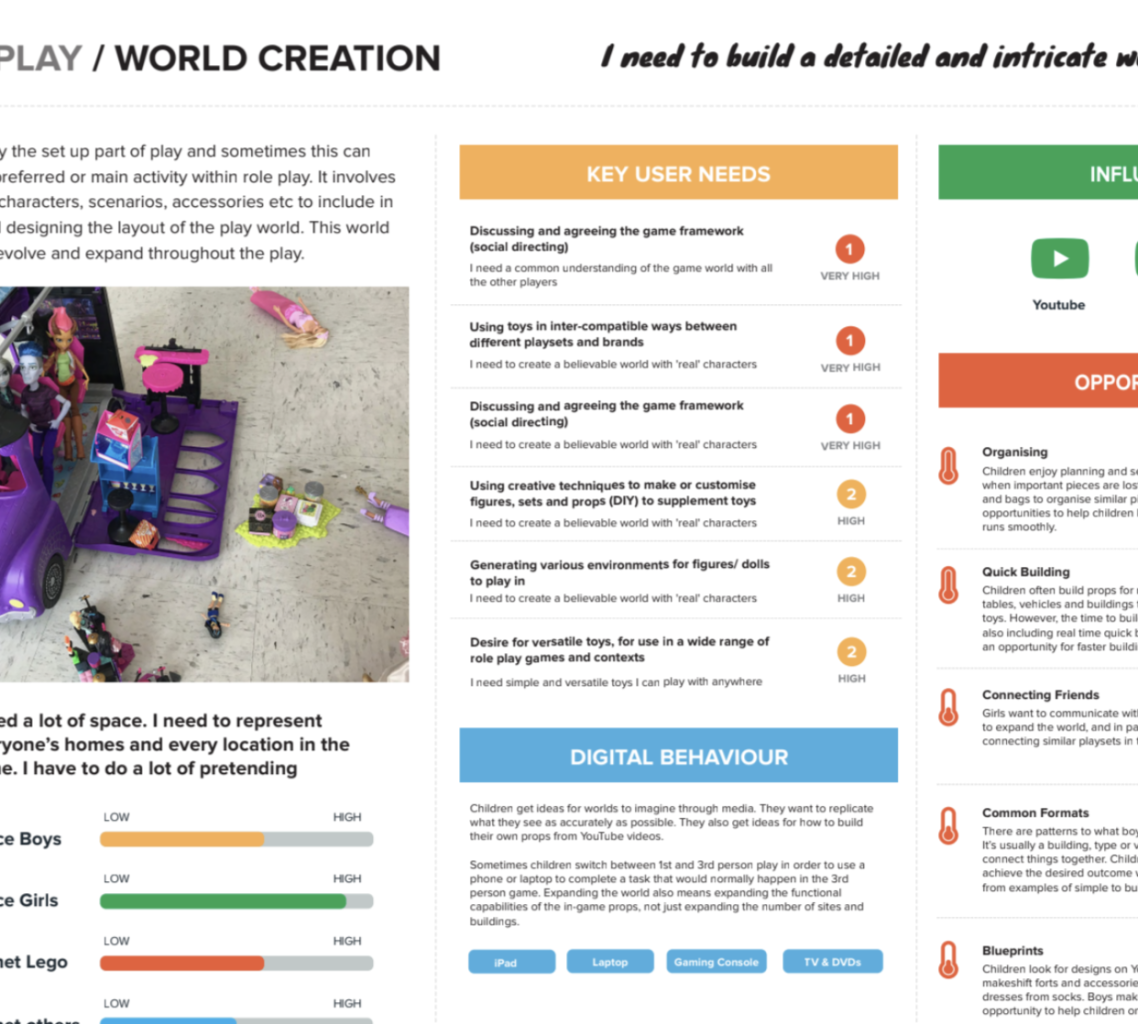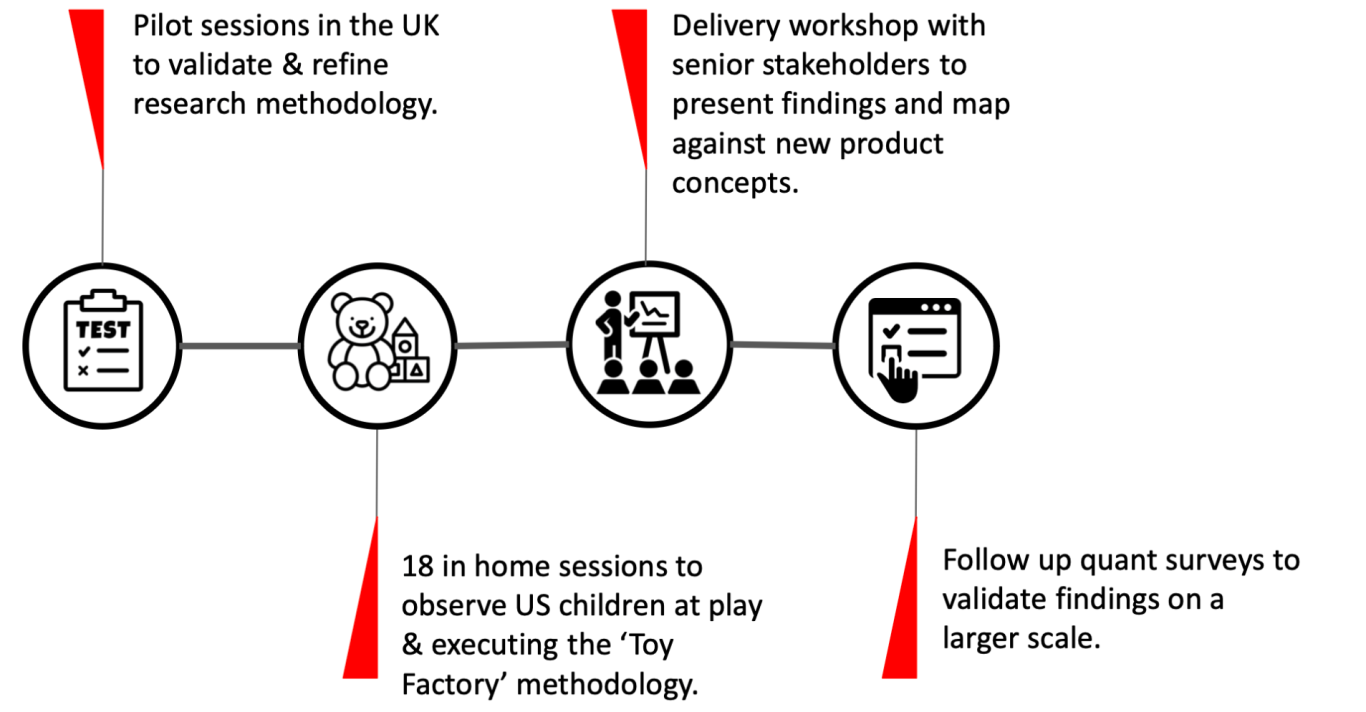LEGO: Kids' needs for toys & play in a modern, digital world.
Ethnographic research in the US & UK with kids & families to understand unmet needs for the design of modern toys & playsets.
Brief
Uncover emerging & unmet needs for play amongst 7-9 year old US children.
Understand how digital technology is changing expectations & habits for toys & modern play.
Approach
3-5 hour long, at-home play research sessions with children, their friends & their families. A bespoke 'Toy Scientist' methodology was designed to maximis kids' engagement. A 1 day toy testing lab event was organised. A quant survey to validate key behaviours & trends.
Outcome
Several workshops with Lego directors in Denmark, working through emerging needs for smart toys + injecting insights into the new toy development process. A strategic & innovative new toy initiative was successfully validated.

Desiging a bespoke method.
To maximise engagement with 7-9 year old kids, the traditional research playbook was binned in favour of a more innovative approach based on cultural probes. Children were recruited by a toy factory to become 'toy scientists' & help to design the ultimate new toys by working through a 6 part toy ideation game, where they earned badges and rewards for completing each part. For example, one activity involved giving kids a camera to complete missions such as taking pictures of 'the 8 most fun things in their life' and explaining their choices. Another was to play their favourite game with their friends for an hour.
Outcome: A brand new end-to-end ethnographic research methodology for informing toy design & optimised for 7-9 year olds. The client praised the creativity & attention to detail of the method.
In-home ethnographic research.
3-5 hour in-home research sessions in the UK and US. Children took the lead role as the head of a toy design team, educating & teaching the grown up toy scientists on what is fun & what makes a good toy.
Research focused on suburban locations in the US Mid-West, A daily blog was used to share insights on the fly with design teams in the UK & Denmark.
Outcome: 64 hours of direct observation of kids at play, In total 76 children took part, generating extremely in-depth insights into the modern world of 7-9 year olds.


The play studio event
100+ top selling toys from a range of categories were arranged across 2 rooms at a small event venue just outside Minneapolis. Families were invited to bring their kids to play for free + test out the toys. At the end of each 60 min play session, the kids were promoted to 'toy scientists' to pick out the best toys & help design new ones.
Outcome: An understanding of which toys capture the kids attention & imagination + how they play with them. A range of new ideas and concepts generated.
Quant survey
An online survey, designed for 7-9 year old kids in the US, to validate the trends, needs and behaviours uncovered in the research.
Outcome: Over 600 completed survey responses, providing an extremely robust and consistent data set for Lego to work with and move their proposals forward.


Play typology posters
To aid the stakeholder workshops, a number of posters were created to summarise each core category of play, with a blueprint of the play and its underlying motivations, illustrated with photos & specific examples.
Outcome: An engaging artefact that served as a specific activity during all day workshops in Denmark.
Stakeholder workshops
A series of workshops, including an all day session at Lego HQ in Denmark with project directors to work through each theme from the research & what it means for the R&D process for a specific new toy concept.
Outcome: A key strategic product concept validated, that would significantly change the way Lego toys are created and played with, offering greater interactivity & realism.

©Copyright. All rights reserved.
We need your consent to load the translations
We use a third-party service to translate the website content that may collect data about your activity. Please review the details in the privacy policy and accept the service to view the translations.

